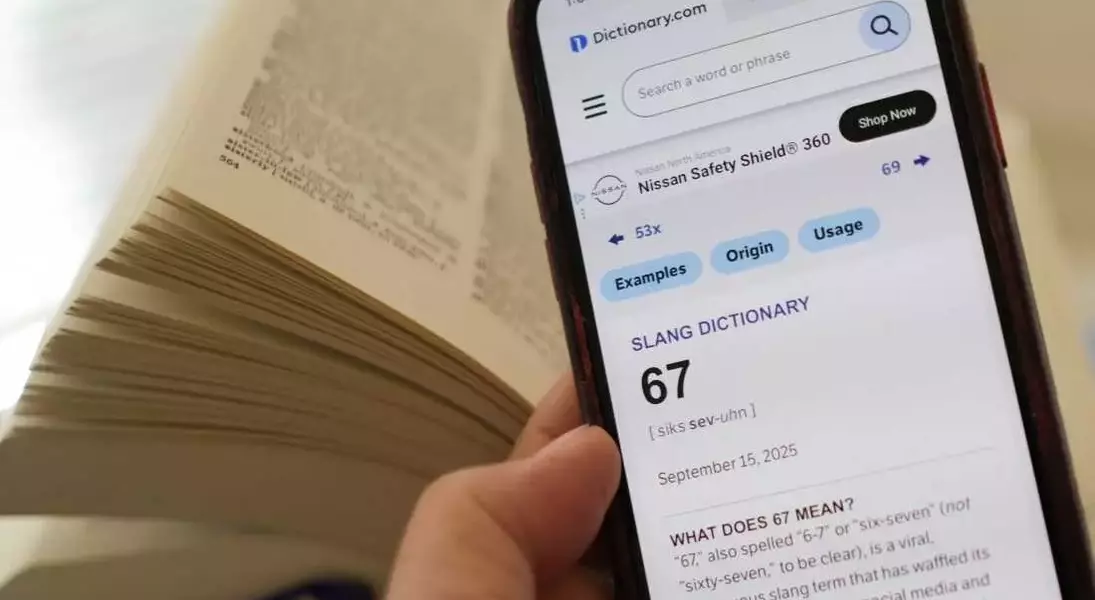
Dictionary.com has, for 2025, bestowed its prestigious \"word of the year\" title upon a numerical pairing, \"67.\" This recognition is typically reserved for terms that encapsulate prevailing societal trends and global occurrences, offering a snapshot of our collective narrative and transformations throughout the year. While past selections like \"demure\" presented clear definitions, \"67\" stands out for its deliberate ambiguity, a reflection of contemporary linguistic evolution.
The genesis of \"67\" traces back to Philadelphia rapper Skrilla's track, \"Doot Doot (6 7),\" released in December of the previous year. What began as a phrase within a rap song quickly gained traction, particularly within the online sphere, propelled by viral TikTok content featuring basketball highlights. Notably, professional athletes such as LaMelo Ball, LeBron James, and Paige Bueckers embraced the term, further cementing its presence across various sports and eventually permeating schools nationwide. Its usage, often accompanied by a distinctive hand gesture, signifies a shared understanding among younger generations. This widespread adoption, despite its lack of a formal meaning, led to a more than sixfold increase in Dictionary.com searches for \"67\" since June, illustrating its significant cultural impact.
Remarkably, the essence of \"67\" lies in its very lack of definition, a characteristic Dictionary.com describes as \"meaningless, ubiquitous, and nonsensical.\" Even Skrilla, the originator, intentionally kept its meaning vague, noting its evolution from a negative to a positive connotation and its diverse interpretations among individuals. As parenting expert Becky Kennedy suggests, the power of \"67\" resides not in its literal meaning but in the sense of belonging and connection it fosters, especially among adolescents. This unique phenomenon underscores how modern slang, born from digital interactions and shared experiences, can become a potent force for cultural cohesion.
The ascendancy of \"67\" as Dictionary.com's Word of the Year illuminates the dynamic and often unpredictable pathways through which language evolves in our hyper-connected world. It challenges conventional notions of definition, highlighting the growing significance of cultural context and shared experience over strict semantic meaning. This linguistic trend encourages us to remain attuned to emerging forms of communication and to recognize the power of seemingly simple phrases to forge bonds and create a sense of community, particularly among younger generations. It is a testament to the ever-changing tapestry of human expression, where innovation and social resonance can imbue even the most abstract terms with profound cultural weight.
